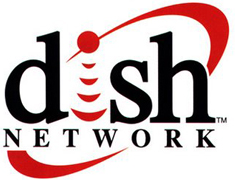Dish Network petitions FCC to block Comcast-Time Warner Cable merger


Dish Network has warned of irreparable harm to competition and consumers alike if US regulators allow the proposed merger between Comcast and Time Warner Cable goes ahead.
On Monday, Dish network revealed the petition, saying that if the Federal Communications Commission (FCC) allows the merger to go forward, the deal could "significantly damage competitive development of over-the-top (OTT) video -- services such as Netflix and Hulu -- and limit consumer access to online video programming."
The satellite television provider's petition (.PDF) outlines a number of key 'harm' points, including the spectre of anti-competitive behaviour, strangled innovation and competition, and obstacles which would prevent online video steaming businesses to expand and evolve.
At the forefront, the firm says "the merger would permit and motivate the combined company to hurt or destroy online video rivals through its control over the broadband pipe, passing an estimated two thirds of US households." For example, the merger company could use 'choke points' to "degrade the online video offerings of competing MVPD and OTT video providers" in three areas -- on the ramp to the Comcast/TWC network, through the last "public Internet" portion of the pipe to the consumer’s home, and via managed or specialized service channels.
This, in turn, could be used to entice more consumers to Comcast/TWC services rather than their rivals -- as choked speeds can make services unusable.
AR + VR
Dish also says that the merger could result in discriminatory data caps, where caps could be used anti-competitively to squeeze out rival firms. The petition states:
"This could be done by exempting Comcast/TWC affiliated content from such data caps and then setting caps so low that consumers are incentivized to choose Comcast/TWC services over competing MVPD and OTT video services."
In addition, Dish insists the merger company could foreclose access to, or raise the prices of affiliated programming, and third-party content owners could be "coerced" to withhold online rights from online video platforms, which would "stifle a crucial source of competition and innovation in the video industry."
Over 40,000 comments have been filed by individuals to the FCC on the proposed merger, and the US agency is currently reviewing the case which would link up the country's top and second-largest cable providers. Douglas County-based Dish has long been a critic of the merger, which was signed in February this year for $45.2 billion.
The stock-swap deal, Comcast insists, is pro-consumer and will improve the firm's service levels as well as better service the enterprise communications industry. Comcast said at the time of the deal's announcement that the merger will result in more Wi-Fi hotspots, improved video streaming services, and better Ethernet and cloud services for the enterprise.
Overall, Comcast believes it will hold less than 30 percent of the whole cable market in the US, but Dish disagrees.
In order to properly service online video companies and stream content properly, Dish says consistent speeds of at least 25Mbps are required in American households -- available only through cable and fiber. This, in turn, would mean that the combined Comcast/TWC entity would "not only pass almost two thirds of U.S. households, but would control 50 percent of the high-speed US residential broadband connections."
"Even at a more conservative threshold of 10Mbps or faster as the relevant product market for broadband, Comcast/TWC would command more than 42 percent of the market," Dish says. "Even at the abysmally low 3Mbps cut-off proposed by Applicants [Comcast], the merger would still result in the combined company controlling 35.5 percent of the market, which by itself would be sufficient to raise serious competitive concerns.”
Finally, Dish says that in the name of public interest, the merger needs to be stopped, and the benefits Comcast cites are little more than speculation. The petition states:
"The claimed benefits do not come close to outweighing the anti-competitive effects of the transaction, and the serious damage that will be inflicted on consumers if the merger is approved.
The cost of “getting it wrong” is immense.
If the Commission approves the merger under a set of conditions purportedly designed to alleviate the harms, and those conditions fail to work (which DISH strongly believes would be the case), competition and consumers would be irreparably and permanently harmed. The risks are simply too great here, and the only outcome that will serve the public interest is to deny the merger or designate it for hearing."
ZDNet has reached out for comment from Comcast and will update if we hear back.